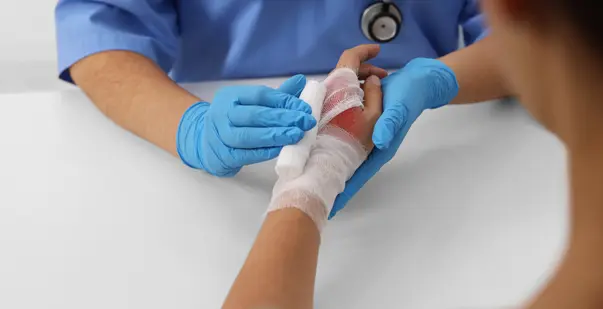If you have ever heard about HIPAA, you have heard about HIPAA violation too. The Health Insurance Portability and Accountability Act (HIPAA), is a crucial law that helps protect the privacy of your health information. Suppose you have sensitive medical details you don’t want just anyone to see. HIPAA makes sure that only the right people can access your health records, keeping your personal information safe and secure.
However, not everyone follows these rules, leading to what’s known as HIPAA violations. These occur when unauthorized people access, use, or share your health information without permission. Such breaches can have serious consequences, including fines for the violators and potential harm to the privacy and trust of patients.
Knowing about HIPAA violations is important for both doctors and patients. It helps healthcare workers keep patient information safe and helps patients understand their rights.
This article explains what a HIPAA violation is and lists the nine most common hipaa violation examples, so you can stay informed about the safety of your health information.
What is HIPAA Violation?
HIPAA, a law from 1996, sets rules for handling health information in the U.S. Breaking these rules, called HIPAA violations, often involves improper access to or sharing of patients’ health data. Other violations can include not training staff properly or failing to check who accesses information.
HIPAA aims to protect patient data in the digital age. It includes three main rules:
- Privacy Rule – Keeps patient data confidential.
- Security Rule – Ensures health data is safely stored and handled.
- Breach Notification Rule – Requires notifying people if their health information is exposed.
In short, HIPAA violations happen when these rules are not followed.
HHS, or The Department of Health and Human Services Office for Civil Rights (OCR) manages HIPAA. HIPAA, which began in 1996, has been changed over time, including through the 2009 HITECH Act.
It applies to:
- Hospitals
- Insurance companies
- Healthcare clearinghouses
- Healthcare providers who operate on a cash-only basis without dealing with insurance
It also impacts companies that offer services to healthcare providers handling protected health information (PHI).
How Are HIPAA Violations Discovered?
In 2022, over 40 million health records were compromised due to HIPAA violations. Employees at healthcare organizations often report these violations. Organizations can also find issues through internal audits and self-reporting. Co-workers may also report violations.
The OCR conducts audits on healthcare organizations randomly or based on complaints. When a complaint is filed, the OCR decides if it needs investigation. If so, it notifies the organization and gathers information. Organizations must cooperate with OCR during investigations. HIPAA protects those who file complaints from retaliation.
After investigation, the OCR determines if the organization is compliant or needs corrective action. A resolution agreement may require the organization to fix violations and report to HHS. Non-compliance can lead to civil penalties.
Examples of the 9 Most Common HIPAA Violations
HIPAA violations cover a wide range of actions, including accidental breaches. For instance, losing a personal phone that accesses work apps can be a violation. These breaches, even if unintentional, can still cause serious harm. Some violations occur due to misunderstandings. For example, one organization was fined for digitizing x-rays without a proper agreement to follow HIPAA rules.
Since 2003, there have been nearly 300,000 investigations into potential HIPAA privacy violations. Yet, many healthcare workers still don’t fully grasp what counts as a violation, despite the hefty penalties. Violating HIPAA rules can lead to fines starting at $50,000, and obtaining patient information without proper cause or knowledge can even result in jail time.
It’s crucial for both employees and employers to understand these hipaa violation examples to avoid such penalties. Therefore, here are 9 most common examples of hipaa violations.
1. Snooping on Healthcare Records
Unauthorized access to healthcare records occurs when someone views or uses a patient’s medical information without permission. This is against the Privacy Rule under HIPAA, which safeguards all identifiable health information, whether electronic, paper, or spoken.
For example, if a hospital employee checks a patient’s records out of curiosity or for personal reasons, it’s a violation.
A well-known case involved the University of California Los Angeles Health System, fined $865,000 for not controlling access to medical records. This underscores how crucial it is for healthcare providers to limit access to authorized personnel only, strictly for patient care purposes.
Unauthorized access breaches patient trust and can result in severe penalties.
2. Failure to Perform an Organization-Wide Risk Analysis
This violation happens when healthcare organizations don’t regularly check for risks and vulnerabilities that could make electronic health information (ePHI) less secure. These risk analyses are crucial for identifying and implementing safeguards to comply with the Security Rule under HIPAA.
For instance, Advocate Health Care, an Illinois healthcare network, was fined $5.6 million for failing to conduct a risk assessment that accounted for physical and administrative safeguards.
This case shows why healthcare organizations need to regularly check for risks. It helps find weaknesses and put in better security to keep patient info safe.
3. Failure to Manage Security Risks or Not Having a Risk Management Process
This violation happens when healthcare providers don’t have enough safeguards to protect sensitive health information. According to the HIPAA Security Rule, they must use administrative, technical, as well as physical measures to keep electronic health data safe and private.
However, if a company doesn’t make sure these protections are followed, it can break the rules. The main reason for these problems is often not having a good plan to manage risks. This means finding risks, seeing how bad they could be, and making plans to make them less likely.
Without such a process, organizations are more susceptible to breaches of ePHI, which can result in significant penalties and damage to their reputation.
4. Denying Patients’ Access to Health Records
This violation occurs when healthcare providers deny patients access to their own health records or fail to provide access within the designated timescale.
Patients under the HIPAA Privacy Rule can ask for copies of their health records, which healthcare providers must give within 30 days of the request. If they fail to do so, it’s considered a violation.
For example, Cignet Health of Prince George’s County, Maryland, was fined $4.3 million for denying 41 patients access to their medical records and then failing to cooperate with the Office for Civil Rights’ investigations into these complaints.
This case highlights the importance of timely and unrestricted patient access to their own health information, as mandated by HIPAA.
5. Not making a HIPAA-approved Deal with a Business Partner
A business associate under HIPAA is any organization or person that works with or provides services to a healthcare provider and handles or shares Protected Health Information (PHI) or Personal Health Records (PHR).
According to HIPAA rules, a covered entity must enter into a contract with their business associate to ensure that the associate will appropriately safeguard PHI. The contract should explain how the business associate can use PHI. It must also say that the associate won’t use or share PHI except as allowed by the contract or required by law.
Failure to have such a HIPAA-compliant business associate agreement in place is a violation of HIPAA rules and can result in penalties and fines.
6. Insufficient ePHI Access Controls
This violation occurs when a healthcare organization fails to implement adequate measures to control and monitor who has access to ePHI.
The HIPAA Security Rule requires that only authorized individuals should have access to ePHI and that they should only access the minimum necessary information to perform their job functions. Failure to implement sufficient access controls can lead to unauthorized individuals gaining access to ePHI, which can result in data breaches.
For instance, violations discovered after a data breach often involve insufficient access controls that put health information at risk. To avoid this type of violation, requests for access to ePHI must be verified and authenticated.
7. Not using encryption or similar methods to protect ePHI on portable devices
This violation occurs when healthcare organizations do not use encryption or a similar security measure to protect ePHI stored on portable devices such as laptops, flash drives, and mobile phones.
For instance, the Children’s Medical Center of Dallas had to pay $3.2 million in civil fines for failing to address known security risks, including the lack of data encryption on portable devices.
Another example is the University of Rochester Medical Center (URMC), which had to pay $3 million to settle with the OCR. This happened because in 2013 and 2017, they lost an unencrypted flash drive and had an unencrypted laptop stolen.
These incidents underscore the importance of using encryption to protect ePHI on portable devices to prevent unauthorized access and potential data breaches.
8. Going past the 60-day Deadline for Sending Breach Notifications
According to the HIPAA Breach Notification Rule, healthcare organizations are required to notify affected individuals within 60 days of discovering a data breach. Failure to meet this deadline is a violation of HIPAA rules.
For instance, Presence Health had to pay a $475,000 settlement for issuing breach notifications one month past the 60-day deadline. Similarly, CoPilot Provider Support Services Inc. had to pay a $130,000 settlement with the NY Attorney General for delaying breach notifications.
These hipaa violation examples highlight the importance of timely communication in the event of a data breach to maintain compliance with HIPAA regulations.
9. Impermissible Disclosures of Protected Health Information
This includes any information about your health, healthcare you received, or payments for healthcare that can be shared without your permission or knowledge. This could happen in various ways, such as discussing a patient’s condition with others without the patient’s consent, improperly disposing of documents containing PHI, or even accidentally sending PHI to the wrong recipient.
It’s important to note that under the HIPAA Privacy Rule, PHI can only be shared for treatment purposes, payment for care, and healthcare operations. Any other disclosures require the written consent of the individual.
Violating this rule can lead to significant penalties, including fines and potential jail time. Therefore, healthcare organizations must have strict protocols in place to prevent such disclosures.
Other Complex Examples of HIPAA Violations
Some situations involving HIPAA violations are less clear. For instance, is it a violation if medical records are lost? It can be. HIPAA guarantees patients access to their medical records within 30 days of a request. Failing to provide them is a violation. Also, losing a device or records that expose patient information to unauthorized people breaks HIPAA rules.
Another example: Can law enforcement or military agencies violate HIPAA? It depends. Law enforcement agencies aren’t usually covered by HIPAA unless they provide medical services. If they do, they can face penalties for violations.
Regarding military rules under HIPAA, there’s an exception. Medical providers can share patient information with the military to assess fitness for duty or specific missions.
How to Avoid HIPAA Violation
Avoiding HIPAA violations is crucial for healthcare providers and anyone handling protected health information (PHI). Here are some key practices to follow:
1. Training and Awareness
Make sure everyone on the team knows about HIPAA rules, including how to keep information private and secure. Regularly update their training to stay on top of the latest rules.
2. Secure Handling of PHI
Implement physical, technical, and administrative safeguards to protect PHI. This includes using encryption for electronic PHI (ePHI), securing physical records, and establishing policies for handling and disposing of PHI securely.
3. Access Control
Limit access to PHI to authorized personnel only. Use unique user IDs, passwords, and other authentication methods to control access to electronic systems containing PHI.
4. Business Associate Agreements (BAAs)
Make sure that any third-party vendors or contractors who handle PHI sign a BAA. This agreement outlines their responsibilities to protect PHI and specifies how they should handle and secure the information.
5. Data Minimization
Only collect, use, and disclose PHI that is necessary for a particular purpose. Avoid unnecessary sharing of PHI and ensure that disclosures are limited to the minimum necessary information required.
6. Patient Consent
Obtain patient consent before using or disclosing their PHI, except in situations where the Privacy Rule allows disclosures without consent (e.g., for treatment, payment, or healthcare operations).
7. Incident Response Plan
Develop and implement a plan for responding to data breaches or incidents involving PHI. This plan should outline steps for containing the breach, assessing its impact, notifying affected individuals, and reporting the breach as required by HIPAA.
8. Regular Audits and Monitoring
Conduct regular audits and monitoring of your HIPAA compliance efforts. This includes reviewing access logs, conducting risk assessments, and addressing any vulnerabilities or non-compliance issues promptly.
9. Updates and Changes
Stay informed about changes to HIPAA regulations and update your policies, procedures, and safeguards accordingly. Compliance with HIPAA is an ongoing process that requires vigilance and adaptation to new requirements.
Is a HIPAA Violation Grounds for Termination?
Yes, a HIPAA violation can indeed be grounds for termination, but it is largely based on the nature of the violation, the consequences of the violation, the employee’s prior compliance history, and the sanctions policy of the employer. Not all HIPAA violations are equal, although any violation of HIPAA Rules is a serious matter that warrants investigation and action by healthcare organizations.
When an employee breaks HIPAA Rules, whether they knew or not, there can be consequences. Some healthcare companies fire employees for serious violations, while others handle smaller ones within the organization.
Based on what happened, someone who breaks HIPAA rules might get in trouble. They could be suspended while they investigate. They might even get fired. What happens next depends on the rules where they work and how bad the violation was.
Take Action to Protect Patient Privacy
Understanding and avoiding HIPAA violations are crucial for protecting patients’ sensitive health information. Each example discussed highlights the importance of following strict guidelines to prevent unauthorized access, improper sharing, and inadequate data security. By implementing proper training, policies, and technology safeguards, healthcare providers can ensure compliance with HIPAA regulations. Not only does this protect patient privacy and trust, but it also mitigates the risk of legal penalties and reputational damage. Ultimately, adherence to HIPAA standards promotes a safer healthcare environment where patient confidentiality remains paramount.













